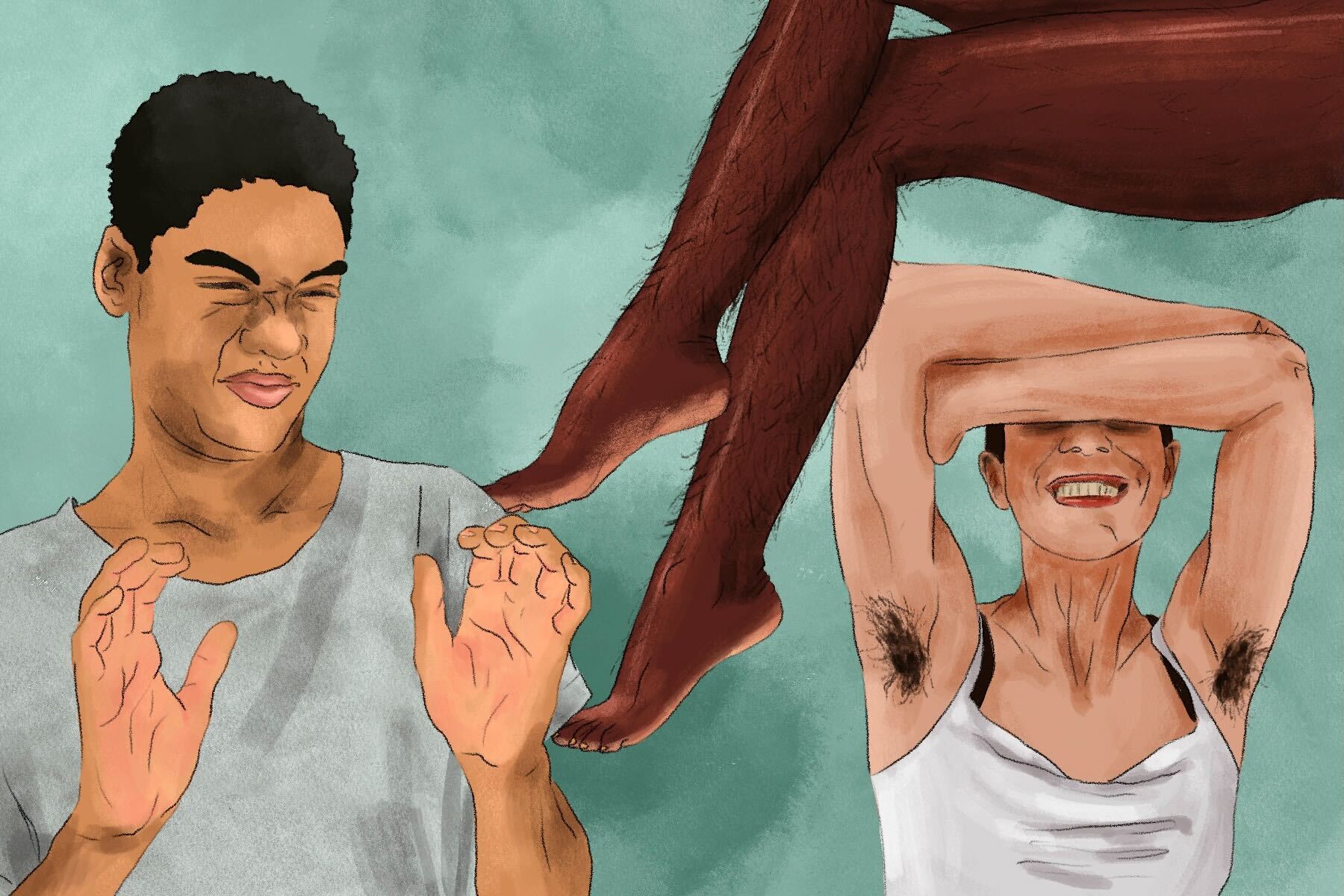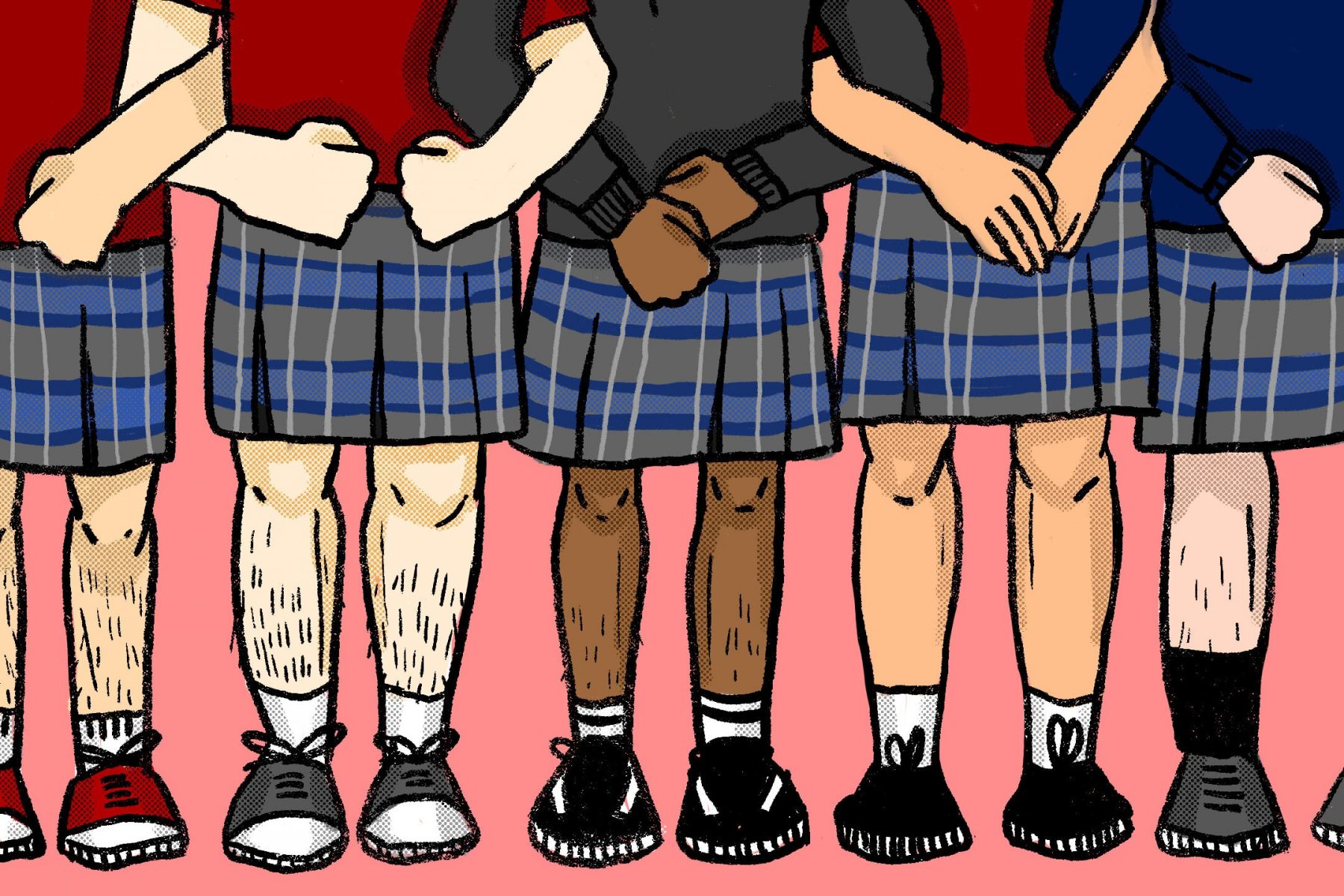Body hair has been stigmatized as unprofessional and rowdy for centuries, reflecting society’s ongoing obsession with policing women’s bodies. The world’s oldest known razors originated in India and Egypt around 3000 BCE. In this era, hair removal was promoted for safety reasons. Yet even during ancient times, body hair was linked to lower-class citizens and the uncivilized. Since then, people have used tools that range from pumice stones to sugar wax to remove their hair, even when their skin was mostly covered by clothing in an effort to maintain modesty.
Darwin, Advertisements and the Razor
Today, the trend, which was validated by Charles Darwin’s theory of natural selection, leans toward near-total hairlessness. Darwin argued that humans have less body hair than our primate ancestors because people who are less hairy have a higher likelihood of mating, making them more evolutionarily fit. Over several generations, this sexual selection meant that hairier genes were less likely to be passed down because they were less favorable. Over the course of the 20th century, this scientific explanation was warped, and hairiness became associated with undesirability and a lack of femininity.
From sleeveless flapper dresses in the ‘20s, miniskirts and pin-up styles in the ‘40s and bikinis in the ‘80s, the last century saw a multitude of women’s fashion trends. As women gained clothing freedom (and other liberties, such as suffrage), they were pressured into following different rules; for example, if women were going to show skin, it had to be smooth. The first women’s razor was introduced in 1915, produced by a brand that had previously only manufactured men’s razors. The industry has seen plenty of other technological removal advancements as well, including depilatory creams, laser removal and electrolysis.
Advertisement campaigns also played a huge role in making the razor a household staple, with many ads calling shaving the must-have solution to the embarrassing personal problem of body hair or the ultimate female act. Other advertisements claimed that body hair was simply unsanitary — but only on women, of course. Men’s leg hair was absolutely fine and justified (following Darwin’s logic, though, both genders should have been removing their hair). The women’s hair removal industry was a booming business that, over time, successfully shaped societal discomfort with the natural female body and profited from women’s insecurity and men’s disgust.
Hair and Challenging the “Normal” Female Body
Today’s researchers disagree with Darwin and postulate that our reduced levels of body hair have to do with thermoregulation, not the likelihood of finding a mate. So, it really does not biologically matter if a person removes their hair or not. Body hair removal is thus a beauty practice — something people can indulge in if they so choose. However, our current standards define body hair removal as a hygienic practice — something that we must do, even though it offers no health benefits. Bodies with hair are considered abnormal, and the demands of our beauty standards rise just a little bit more. Bodies should not be trends; if they are, then the definition of a “normal” body will never stop changing.
Inevitably, this notion can have extremely damaging effects on women, as it shames us into thinking that our natural bodies are dirty. We feel required to rid our skin of hair in order to prove our womanhood and to avoid embarrassment. When we do not, it can send unnecessary shockwaves to the people around us. In 1999, for instance, Julia Roberts waved her hand at the premiere of “Notting Hill” and revealed her underarm hair. The tabloids went wild and the images made headlines, but it inspired many women to do the same, on and off the red carpet. People hailed Roberts as a feminist icon, even though she admits she had no agenda at the premiere.
Two decades later, having body hair is still considered a bold statement as opposed to just being human. Young celebrities make headlines almost every time they do it.
We are still fighting to change the norm and encourage the ideology that body hair removal is a choice rather than an obligation. Hair removal can feel comfortable for some women because smooth skin can be satisfying and reduce itchiness caused by stubble. For others, it can be a hassle that is just not worth it. It can also dry skin out and feel odd.
A number of wellness brands have recently started promoting products that allow people to feel confident in their personal body hair preferences — Billie, for example, had one of the first advertisements in which a woman shaved actual hair (other shaving advertisements usually depict women shaving their already smooth skin).
From the successive pinches during eyebrow threading to the big rip during wax sessions, young women have always been taught that beauty is pain. However, no matter how difficult it is to remember, beauty is whatever we make it.

















